‘Our reactor is so safe we let undergrads operate it’
Reactor produces isotopes for research, offers nine-month operator training program
WSU is home to a nuclear reactor of its own. The core sits at the bottom of a 25-foot deep pool.
September 23, 2021
Seated in the console room of WSU’s Dodgen Research Facility, nuclear reactor operators have a poolside view unlike any other.
Just on the other side of the console room window lies a 25-foot deep pool containing 65,000 gallons of water — and WSU’s very own nuclear reactor.
A deep blue glow surrounds the reactor core at the bottom of the pool. This phenomenon, called Cherenkov radiation, occurs when negatively charged electrons move through the water at a faster speed than light, said Reactor Superviser Hillary Bennett.
Unlike many larger reactors, WSU’s is not used for energy; its power will never exceed one megawatt. WSU’s facility is classified as a Teaching, Research, Isotopes, General Atomics reactor, she said.
WSU was selected as the location for the reactor because of its proximity to the Hanford B Reactor, Bennett said. The facility opened in 1961 as a materials test reactor and was converted to a TRIGA reactor in 1967.
“Not a whole lot has changed,” she said.
The reactor produces radioactive isotopes for WSU professors and national labs to use for research and training purposes, Bennett said. Isotopes are atoms with additional neutrons in their nucleus, which can be emitted as different forms of energy.
WSU produces isotopes that are used as radiotracers for oil, so oil companies can identify if there is an oil where there shouldnt be any, she said.
WSU is collaborating with the Idaho National Laboratory on a project using potassium bromide, Bennett said. INL explodes the compound to simulate a dirty bomb for first responder training.
Nuclear non-proliferation and safety training are some of the facility’s essential functions, she said.
WSU offers a nine-month nuclear reactor operator training program for students. Once the program is complete, students are assessed by the U.S. Nuclear Regulatory Commission and can be licensed as nuclear reactor operators, Bennett said.
This year’s class of nuclear reactor operators is the largest WSU has ever had with eight students, she said.
“Our reactor is so safe we let undergrads operate it,” Bennett said.
Nuclear reactor operators are trained to sit at the reactor console and maintain the pool and nuclear core conditions. They are also trained to respond in an emergency, including initiating an emergency shutdown, Bennett said.
Bennett and Reactor Operator Joseph Cummings said they have never had to initiate an emergency shutdown for a problem with the reactor. Usually, they have to shut it down when someone drops something into the pool.
The reactor releases very little radiation, Bennett said. Reactor operators are exposed to less radiation inside the facility than outside it because the concrete building blocks radiation from space.
Smoke detectors, lantern mantles for camping and some types of dishes all contain detectable amounts of radioactive substances, she said.

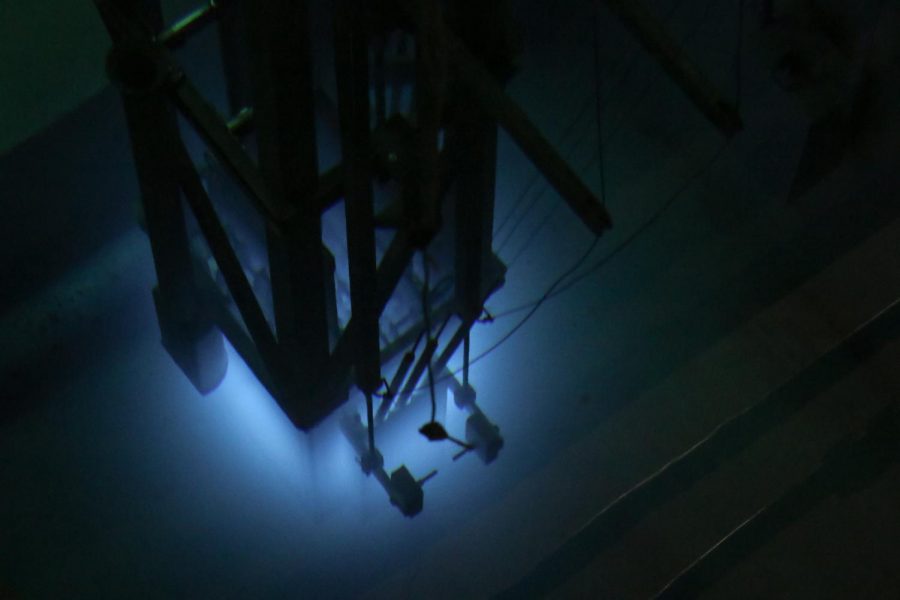





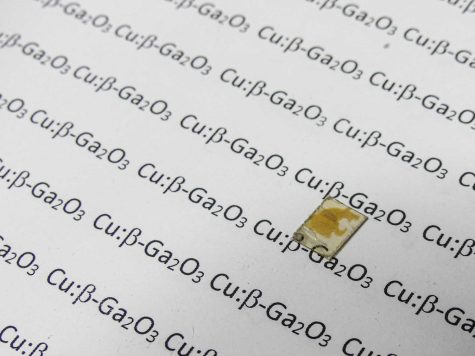
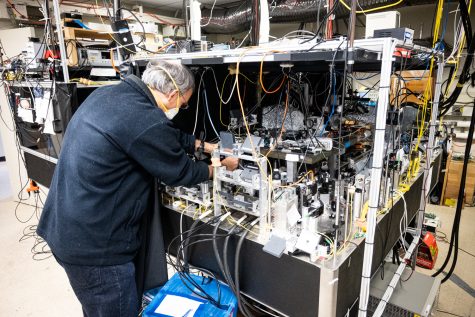

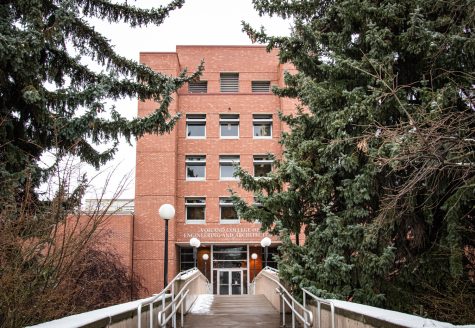





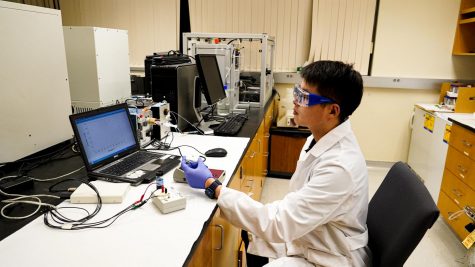


Bettadapura Sharma • Sep 29, 2021 at 3:09 pm
“Faster than light?”
In water , light travels slower (Speed in vacuum / Refractive Index of water) at 225,000 KM/s. Hence, if electrons travel faster than this speed , they will emit shock waves similar to sonic boom from objects moving at supersonic speed e.g. bullet fired from a gun.
Richard • Sep 23, 2021 at 8:39 am
Faster than light?